3 Pieces of Advice No Writer Should Ever Forget
Writing is incredibly rewarding, but it can also be extremely challenging. Every artist is unique and every writer has their reasons for wanting to write, yet there are some pieces of advice that hold true for all creative spirits. Whenever you find yourself at a low point, reminding yourself of this advice may be the motivation you need to get back to writing!
So for those of you who so nobly chose to be writers, here are three pieces of advice you should never forget. Enjoy, and stay motivated!
1) Writing isn’t always easy, but you should do it anyway.
I hate writing. I love having written. –
Dorothy Parker/ every writer ever
I’ve said it before and I’ll say it again: writing is the hardest thing ever! Not always, but enough of the time to disillusion the most resilient of idealists.
Writing has its ups and downs. Sometimes inspiration strikes and you stay up until 3 a.m. finishing your latest chapter. Other times you get stuck or work for days straight only to have to throw all those pages out by the final draft. It’s enough to drive anyone crazy!
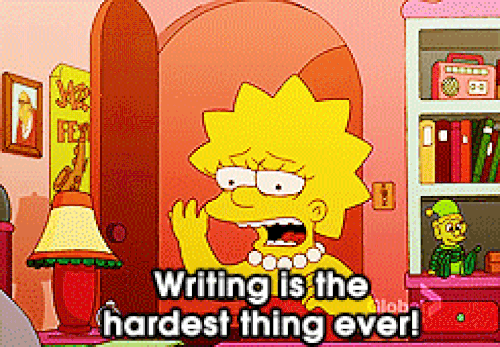
And yet you keep writing anyway. Why? Because deep down you know that even at its worst, writing is worth doing. It’s liberating. It exercises your imagination. It’s one of the greatest ways to express yourself. And you just love it. As much as you hate it sometimes, you love it. And if you can turn that passion into something beautiful? Well, congratulations: you’re a true writer!
Why do you write? Only you can answer that question for yourself. But whatever the reason you became a writer, it matters. So make it count.
2) The first audience you should ever try to please is yourself.
Better to write for yourself and have no public, than to write for the public and have no self. – Cyril Connolly
This may seem obvious, but at some point in the writing process, many writers fall into the trap of people-pleasing. Will my friends and family like this? Will my editor like this? Will my target audience like this? What if nobody likes it? Maybe I should change it.
Yes, writing with an audience in mind is important: we want readers to love our work so we can sell more books and be successful. The trick is finding the overlap between what people want to read and what you want to write.
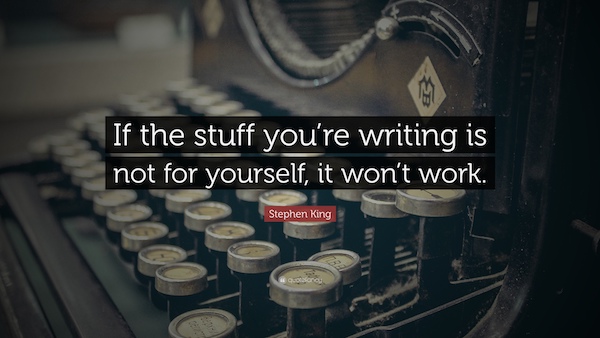
Maybe you want to capitalize on the latest trends in fiction or adjust your style to appeal to a wider audience. But if you try to write an edgy dystopian sci-fi novel when you only like writing Christian historical romance, the quality of your work will suffer. Readers can tell when your heart isn’t in it.
Whenever you sit down to write something new, make sure it’s a story you want to tell. Otherwise you’ll end up with a book that you didn’t want to write and that no one wants to read—nobody wins. Write for yourself first, worry about everyone else later.
3) It doesn’t matter if it’s been done before; if it’s never been done by you, go for it!
There is no one alive who is Youer than You. – Dr. Seuss, Happy Birthday to You!
Human beings are funny creatures. We encourage individuality and freedom of expression, yet we do everything in our power to fit in with everyone else just so we can be accepted by our peers.
As much as art thrives on individuality, writers suffer from this conflict too. We want to stand out, but we can’t be too different or no one will read our books. As a result, many of us find ourselves caught in the dilemma of wanting to tell a story but worrying that “it’s been done before.”
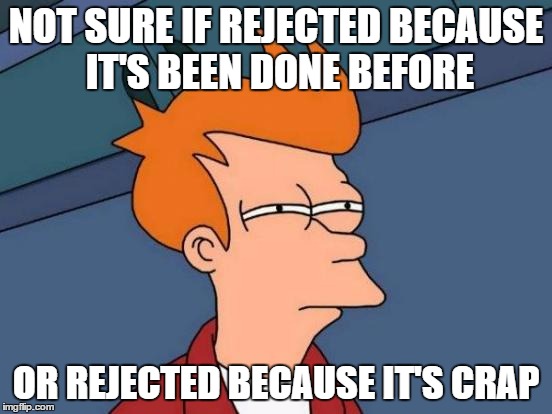
But here’s the truth: it’s not so much about the story you tell as it is about how you tell it.
Think about it: if Shakespeare already wrote the quintessential story of forbidden love with Romeo & Juliet, then how did West Side Story win so many awards? If anyone can just read a history book or a Wikipedia article, then why is it virtually impossible to get tickets to see Hamilton? Why do people continue to write novels and make movies when every work of fiction can be boiled down to one of seven basic plots?
Simple: the story may be the same at its core, but the way it’s told makes it different and interesting. In other words, it’s your voice that will make your story unique.
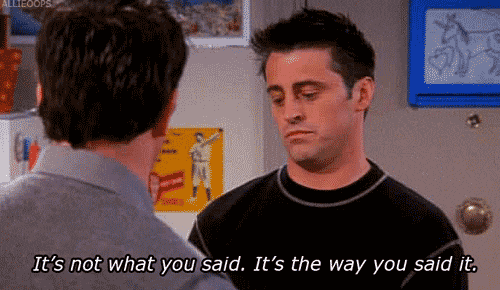
The fact is that every story told since the Age of Antiquity has already been done. What matters is that it’s never been done by you. No one else has your voice, so don’t be afraid to let the world hear it.
What advice about writing do you find most helpful? What other pieces of advice would you add to this list?
Five More Awesome Female Video Game Characters
Last week, I celebrated International Women’s Day by sharing a list of five awesome female protagonists in video games, characters who lead their games with the strength and style that make us gamer girls proud. Now I’d like to acknowledge five more female characters in video games who are just as amazing, even if they’re not the main characters of their games. Badass women come in many forms and character roles!
So continuing from last week’s theme, here are five more awesome female video game characters! Enjoy!
1) Princess Zelda (The Legend of Zelda series)
Link… You may not be at a point where you have fully recovered your power or all of your memories, but courage need not be remembered, for it is never forgotten. – Zelda before the final boss battle in Breath of the Wild
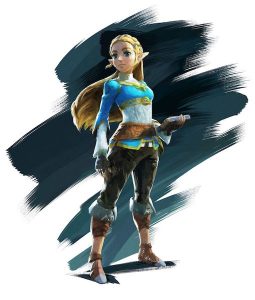 After Lara Croft and Samus Aran, Princess Zelda may be one of the most famous female video game characters of all time. Since the release of the first The Legend of Zelda in 1986, both Zelda and Link have undergone various incarnations, though a few traits remain the same across all games in the series: while Link is always a brave hero, Zelda is always a kind and wise ruler.
After Lara Croft and Samus Aran, Princess Zelda may be one of the most famous female video game characters of all time. Since the release of the first The Legend of Zelda in 1986, both Zelda and Link have undergone various incarnations, though a few traits remain the same across all games in the series: while Link is always a brave hero, Zelda is always a kind and wise ruler.
Though it’s easy to dismiss her as yet another princess akin to Mario’s damsels in distress, Princess Zelda has a lot more going for her than a pretty face. The mortal incarnation of the goddess Hylia, every Zelda is extremely benevolent and wields the Triforce of Wisdom, making her wise beyond her years and a highly capable leader of Hyrule. In fact, the reason she even needs rescuing in the first place is usually that she willingly sacrificed herself to protect her people, a selfless act that takes immeasurable strength. As Zelda clearly demonstrates, kindness is not weakness.
Of course, the beloved princess of Hyrule is not completely defenseless. Several of her incarnations have magical abilities that she often uses to seal away evil and help Link defeat Ganon. She also shows great intellectual prowess in Breath of the Wild, as several of Link’s memories of her reveal she was a curious and devoted scholar. Link may be the player character of the series, but there’s a good reason the games are named after Zelda!
2) Undyne (Undertale)
For the sake of the whole world… I, UNDYNE, will strike you down! You’re gonna have to try a little harder than THAT. – Undyne in the Genocide Route
![]() Heck yeah, I’m Undertrash! Released by Toby Fox in 2015, the indie RPG Undertale took the world by storm for its unique take on video game violence and morality: the only way to “win” the game is by not killing anyone!
Heck yeah, I’m Undertrash! Released by Toby Fox in 2015, the indie RPG Undertale took the world by storm for its unique take on video game violence and morality: the only way to “win” the game is by not killing anyone!
Sounds simple enough, right? Well, some characters make this harder than it seems, and the most notorious of all is the Captain of the Royal Guard, Undyne.
About halfway through the game, players are forced into a battle against this super-powerful fish monster, who by now has chased your human player character across a sizable stretch of the monster world. From this point on, it becomes clear that Undyne values justice and honor above all else: she offers you a spear for self-defense to make the battle fair, she lets you go when she no longer sees you as a threat, and she later admits that she was conflicted about fighting an innocent human but chose to do so for the greater good of all monsterkind. Heroes have to make tough choices!
Lucky for us that Undyne turns out to be so cool, because with her incredible fighting skills and sheer determination, she could easily kill us if she really wanted to. No wonder all the monster children look up to her!
3) GLaDOS (Portal)
Okay, look, we both said a lot of things that you’re going to regret. But I think we can put our differences behind us. For science. You monster. – GLaDOS after your “reunion”
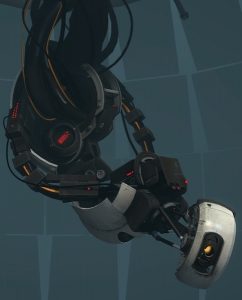 Sing it with me! “This was a triumph…”
Sing it with me! “This was a triumph…”
Okay, maybe the whole “The Cake is a Lie” meme has been overplayed, but GLaDOS is still one of my favorite video game villains ever. When a supercomputer is out to kill you, you at least want her to have a sense of humor about it!
The original Portal is very simplistic in its design: you play as a test subject named Chell navigating an empty lab with nothing but a portal gun and the voice of the AI GLaDOS to guide you. The game starts out as a series of fun puzzles as you progress through the test chambers, but takes a dark turn when GLaDOS’s true colors come to light—unless, you know, lowering test subjects into an incinerator was standard practice for Aperture Laboratories.
Despite her obvious psychopathy, GLaDOS has achieved fame as one of the most popular video game villains ever created. Her dry wit and sarcasm make for some hilarious one-liners, and the fact that she’s the only other character in the game besides the silent human protagonist amplifies her passive-aggressive nature to fill the entire game. She also seems to have a genuine interest in science and even shows some signs of admiration and affection for Chell by the end of Portal 2. To say their relationship is complicated is a bit of an understatement.
Thanks to the lovable personality behind her murderous tendencies, it’s only too easy to get attached to this sassy robotic serial killer. Indeed, the final encounter with GLaDOS is considered one of the hardest boss battles in video game history—not because it’s technically difficult, but because players are very conflicted about killing her, myself included. Can you say Stockholm syndrome?
4) Tracer (Overwatch)
Cheers, love! The cavalry’s here! – Tracer’s “character selection” catchphrase
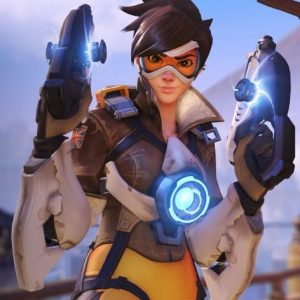 Overwatch is so popular that even if you’ve never played the game yourself, you’ve almost definitely seen this character before. Though she’s part of a diverse cast of characters, each of whom is awesome in their own right, it’s easy to see why Tracer is the face of the game. Cheerful and badass make a lovable combination!
Overwatch is so popular that even if you’ve never played the game yourself, you’ve almost definitely seen this character before. Though she’s part of a diverse cast of characters, each of whom is awesome in their own right, it’s easy to see why Tracer is the face of the game. Cheerful and badass make a lovable combination!
Born Lena Oxton, Tracer’s backstory reveals she was the youngest pilot in Overwatch’s experimental flight program. After an accident left her desynchronized from the flow of time, she was anchored back in the present by Winston’s chronal accelerator, which gave her the ability to speed up or slow down her own time at will. Talk about a cool superpower!
Even after Overwatch’s dissolution, Tracer continues to be a hero and fight for justice everywhere she goes. She is fearless and determined while always remaining positive and energetic. And to top it all off, she has a girlfriend, making her a strong role model for the LGBTQ community! Tracer represents a lot of different character types, but most notably of all, she represents the optimistic hero any one of us can be!
5) Ms. Pac-Man (Ms. Pac-Man)
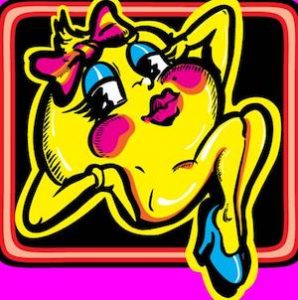 Okay, so this entry is more about the game than the character, but I still think it’s a noteworthy addition to the list. Samus Aran may have been the first female protagonist in a mainstream console video game, but Ms. Pac-Man was the first female video game protagonist ever!
Okay, so this entry is more about the game than the character, but I still think it’s a noteworthy addition to the list. Samus Aran may have been the first female protagonist in a mainstream console video game, but Ms. Pac-Man was the first female video game protagonist ever!
Following the success of Pac-Man, Midway Games produced their own version of the Namco smash hit in 1982, which featured a female protagonist, new mazes, and several gameplay improvements. The result was Ms. Pac-Man, an even more challenging and entertaining version of Pac-Man that became the most successful American-produced arcade game of its year.
While Ms. Pac-Man may not have been the game to draw large numbers of women to the arcade scene, it was a tribute to all the female gamers who helped make the original Pac-Man such a success. If anything, Ms. Pac-Man brought more recognition to female players in what was often perceived as a male hobby; after Pac-Man, the most popular arcade games among women were Berzerk and Space Invaders, but Ms. Pac-Man was the first game that unapologetically catered to a female audience and pushed gaming a little closer to a gender-neutral future.
To be fair, Toru Iwatani intended for Pac-Man to be asexual so as to appeal to men and women equally; it was only after the release of Ms. Pac-Man that players were forced to think of the original character as male, which has sparked some controversy around the newer character. Still, the fact that Ms. Pac-Man was the first unequivocally female character in a video game was groundbreaking, and her game remains one of the most popular arcade games of all time. Say what you will about her character design, but Ms. Pac-Man marked a significant step forward for gamer girls everywhere!
Who are your favorite female video game characters? What other characters would you add to this list?
Five Awesome Female Video Game Protagonists
International Women’s Day is this week, a time to celebrate women and all the awesomeness we bring to the world! Last year, I wrote a series of blog posts about awesome female characters in fiction, most of which focused on Disney princesses and heroines. So this year, I figured it would be fun to continue that series into the theme of video games!
So to celebrate Women’s Day, here are five awesome female protagonists in video games! Enjoy!
1) Aloy (Horizon Zero Dawn)
I would have wanted her to be curious. And willful—unstoppable, even. But with enough compassion to heal the world. Just a little bit. – Dr. Elisabet Sobeck
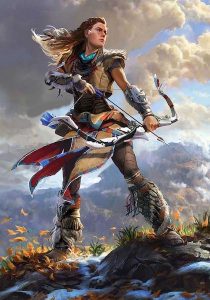 Shortly after its release in February 2017, Horizon Zero Dawn quickly became one of PlayStation’s best-selling games of all time. And with good reason: it’s amazing! This masterpiece by Guerrilla Games boasts everything from a compelling story to an engaging open world to awesome gameplay, but the greatest feature at the heart of the game is undoubtedly its player character, Aloy.
Shortly after its release in February 2017, Horizon Zero Dawn quickly became one of PlayStation’s best-selling games of all time. And with good reason: it’s amazing! This masterpiece by Guerrilla Games boasts everything from a compelling story to an engaging open world to awesome gameplay, but the greatest feature at the heart of the game is undoubtedly its player character, Aloy.
An outcast since birth in a post-post-apocalyptic world, Aloy has been determined to find out where she came from for as long as she can remember. The game introduces her character as a child, and by the time she becomes the young woman we were shown in the E3 trailers, we’re already fully on board with her quest for answers.
Aloy turns out to be an important piece to the puzzle of what happened to the world, so it’s no secret that her story eventually shifts from a personal journey to a quest to save humanity. Fortunately, the game’s excellent pacing keeps us thoroughly engaged with her character as we guide her toward the answers she so desperately wants. We come to love Aloy as much for her strength and determination as for her intelligence and compassion, until her triumphs are every bit as emotionally satisfying for us as they are for her.
Rarely has a game ever pulled me in as deeply as Horizon Zero Dawn has, and I know beyond a doubt that Aloy’s character is to thank for that. With such a strong spirit and a big heart to match, it’s no wonder she’s now one of my favorite video game characters of all time!
2) Ellie (The Last of Us)
Everyone I have cared for has either died or left me. Everyone… f***ing except for you! So don’t tell me that I would be safer with someone else, because the truth is I would just be more scared. – Ellie to Joel after he tries to leave her with Tommy
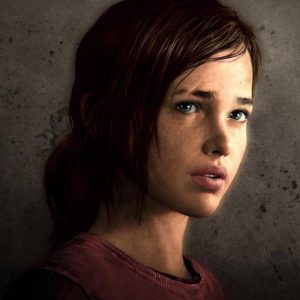 If you’ve played through the prologue of The Last of Us without crying, then congratulations: you officially have no soul.
If you’ve played through the prologue of The Last of Us without crying, then congratulations: you officially have no soul.
Among the many factors that have earned this game over 200 Game of the Year awards, The Last of Us has been praised for its fantastic story, which follows the journey of middle-aged Joel and 14-year-old Ellie across a post-apocalyptic North America.
While the opening quest that reveals Joel’s backstory is tragic, most of the emotional weight of the game lies in his growing relationship with Ellie. What starts as an escort mission soon becomes a bereaved father coming to see this brave young girl as a daughter. Ellie, in turn, comes to see Joel as a father figure, and by the time they reach their destination at the end of the game, their bond has become unbreakable.
Though Joel is the main player character of the game, Ellie is an equally interesting character to whom we can’t help but become emotionally attached as we play through the story. Time and again, she proves herself courageous, clever, and resourceful. Her tenacity and attachment to Joel are most evident in the Winter act of the story, the only part of the game when we play as her and experience firsthand how mentally and emotionally strong she is as she struggles to save his life. She may be a teenager, but Ellie is nothing if not a true survivor!
3) Samus Aran (Metroid series)
But among the stars, there is one light that burns brighter than all others. The light of Samus Aran. Her battles extend beyond her life, and etch themselves into history. – Metroid Prime intro
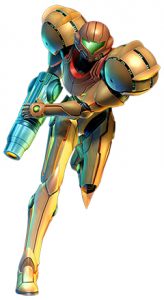 You can’t write a list of noteworthy female video game characters without including Samus Aran! If you only know one thing about the Metroid series, it’s probably the reveal at the end of the original game that the super-powerful player character hidden in the power suit was a woman all along. Talk about a jaw-dropping moment!
You can’t write a list of noteworthy female video game characters without including Samus Aran! If you only know one thing about the Metroid series, it’s probably the reveal at the end of the original game that the super-powerful player character hidden in the power suit was a woman all along. Talk about a jaw-dropping moment!
Video games have come a long way since the androcentric ’80s when this twist was a big deal, but Samus is still revered as the first female protagonist in a mainstream video game, paving the way for the rest of the characters on this list and many more.
Throughout most of the Metroid series, this galactic bounty hunter is typically portrayed as powerful, brave, and tenacious, with a wide array of abilities and enough skill with them to defend the galaxy from the Space Pirates mostly by herself. Controversy and recent revelations about her character aside, there’s no doubt that Samus is one badass lady!
4) Lara Croft (Tomb Raider)
A famous explorer once said that the extraordinary is in what we do, not who we are. I’d finally set out to make my mark, to find adventure. But instead, adventure found me. – Lara Croft, Tomb Raider (2013)
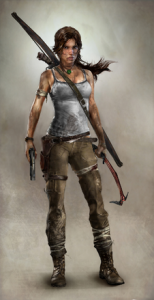 With a new Tomb Raider movie coming to theaters next week, it only makes sense to include this character on the list! Mention female video game characters and Lara Croft is one of the first names to come to mind. It’s no surprise, really; when you’ve been portrayed in a film by none other than Angelina Jolie, you know you’ve hit iconic status!
With a new Tomb Raider movie coming to theaters next week, it only makes sense to include this character on the list! Mention female video game characters and Lara Croft is one of the first names to come to mind. It’s no surprise, really; when you’ve been portrayed in a film by none other than Angelina Jolie, you know you’ve hit iconic status!
Admittedly, Croft has been a subject of controversy since the first Tomb Raider‘s release in 1996. She’s been described as a tabula rasa-type character in earlier games and even a negative role model for girls due to her widespread status as a sex symbol in the video game community. However, she does deserve some praise for being an archeologist/adventurer, a line of work that requires a great amount of independence, intelligence, courage, and resourcefulness, all of which she has in spades!
Sure, Lara Croft’s adventurous spirit may not be the reason young boys have hung posters of her in their bedrooms for years, but it is one reason she shouldn’t be written off as just another over-sexualized female video game character with zero personality (God knows there are too many of those as it is). Hopefully the upcoming Tomb Raider film will do this awesome character justice!
5) Red (Transistor)
Look, whatever you’re thinking, do me a favor: don’t let go. – The Transistor to Red
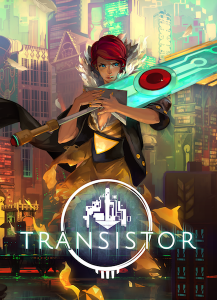 I’ll be honest: Transistor is one of the few video games that have ever made me cry. And not just a few tears, either; I’m talking waterfalls. Supergiant Games are masters of emotional storytelling.
I’ll be honest: Transistor is one of the few video games that have ever made me cry. And not just a few tears, either; I’m talking waterfalls. Supergiant Games are masters of emotional storytelling.
Set in a futuristic city called Cloudbank, Transistor follows a singer named Red on her quest for revenge against the people who stole her voice and killed her lover. Armed with the Transistor—the giant sword-like weapon with which she was almost assassinated and which now contains the consciousness of her fallen lover (it makes sense in context)—Red fights her way through a robotic army known as the Process. As we guide this mute singer through the city, we uncover details about the world and her backstory in the files she collects in the Transistor. We also get to watch her kick some serious butt after setting up an attack sequence for her in the Turn() function. Awesome!
As the story unfolds, we learn that Red was a highly influential figure in Cloudbank, her music being powerful enough to stir controversy and even trigger altercations at her shows. In the present, she proves to be as strong-willed as her voice was intoxicating, ignoring the Transistor’s initial pleas for her to escape the city and fearlessly charging into battle against the Process to avenge him and uncover her attackers’ mysterious motives.
What’s especially interesting about Red is that, unlike the other characters on this list, she wasn’t trained in combat or raised in a hostile environment that left her hardened and cynical. She was a successful artist who had the two most important things in her life taken from her. The fact that she chooses to face her enemies, despite the odds being stacked against her, instead of hide in a corner and cry speaks volumes about her strength of character. You don’t have to be a soldier to know that love is worth fighting for!
What are your thoughts on these female video game protagonists? Any others you would add to this list?
Beta Reader Feedback: Update on the Dragon Story Experiment
It’s been a month since I called for beta readers for my short stories about dragons. (Calls are still open, by the way! If you’re interested, check out my original post here.)
After sharing what my self-publishing experiment is all about, now is a good time for an update on my stories and the feedback I’ve received from beta readers so far! So how have my stories been faring?
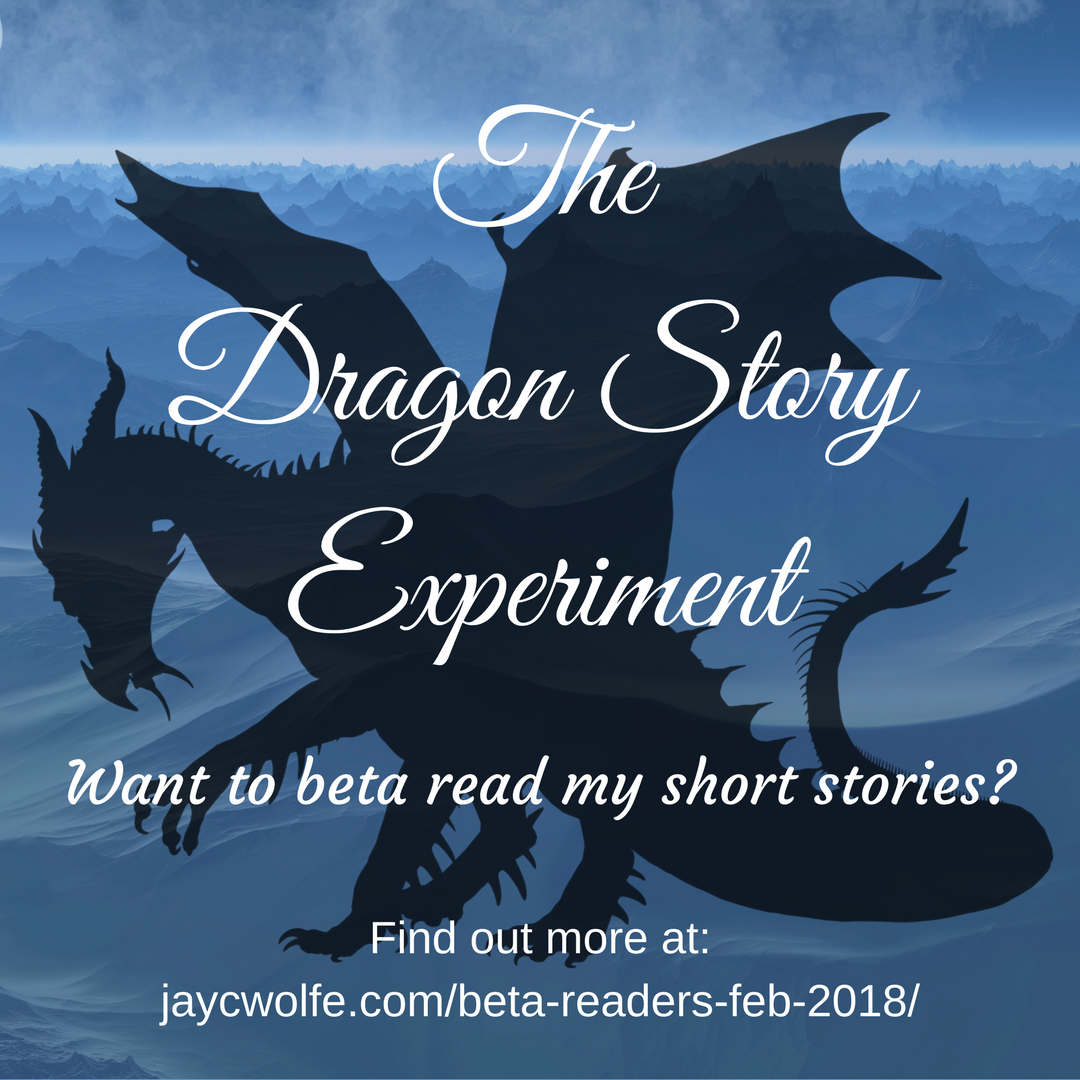
Short Story #1: “Defender”
The first story I lined up for my beta readers is “Defender”, a story about a battle between a dragon and a knight as told from the dragon’s point of view. This one is the most recent of the three; I first published this story on my blog in January 2017. It started as a simple 1000-word story, but after expanding on the action during editing, it doubled in length to 2000 words!
Of my three dragon stories, this one may be my favorite. The feedback on this story has been overwhelmingly positive so far! Obviously, the exclusively positive comments have come from family and friends, but I did receive some constructive feedback from a couple of readers, which was great! I’ll definitely be sure to consider their notes for the final edit!
Short Story #2: “Beastly Pains”
My second story is “Beastly Pains”, a story about a boy who is cornered by a dragon and has to negotiate his way out of being eaten. This one is the oldest of my three stories; I first shared it in a writing community in early 2014. It started at about 2000 words long, but after editing, it grew to around 2200 words.
This one took me over a week longer than I expected to edit, mostly because my writing has greatly improved over the last few years, so there was a lot to delete and change! I sent it out to my beta readers at the end of last week, so I’ve only received constructive feedback from one reader so far (again, family and friends don’t count). Her notes were very helpful and I look forward to using them to improve the final draft of the story!
Short Story #3: “The Silver Queen”
My third story is “The Silver Queen”, a story about an outcast dragon looking for a way to fit in. I’m particularly proud of this story because it won an honorable mention in a short story contest back in 2014. It’s currently sitting at about 2000 words but may end up slightly longer in the final beta draft.
I’m still editing this one (thanks to the delay with “Beastly Pains”), so I haven’t yet sent it out to my beta readers. Though I have no feedback to report right now, I am confident it will be well received, if for no other reason than I was definitely inspired when I wrote it! I plan to send it out within the next week. Hopefully my beta readers will like it!
To those of you who have been beta reading my stories this month, thank you so much for your time and feedback! You’re awesome!
Not my beta reader yet but interested in being one? Sign up for my beta readers’ list!
10 Signs Your Dad is the Biggest Supporter of Your Writing Career
Support comes in many forms and from many different people, but one of the few people you can count on to always support you is your father. A while back, I shared ten reasons that your mom is your biggest fan. Now that a special occasion has come up for that other awesome parent in my life, today I’d like to share ten signs that your dad is just as big of an influence on your career as a writer!
So for your consideration, here are ten signs your dad is the (other) biggest supporter of your writing career. Thanks for all your support, Dad!
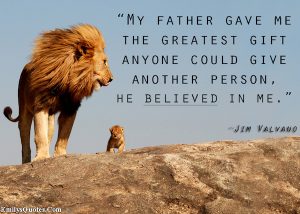 1) He’s your number one patron – Since my earliest days of writing, my dad has been extremely generous in supporting my dreams, especially financially. He even bought me my domain and hosting when I started blogging! I wouldn’t consider myself a “starving artist” now, but having such a great patron in the beginning was a huge help in kickstarting my career as a writer!
1) He’s your number one patron – Since my earliest days of writing, my dad has been extremely generous in supporting my dreams, especially financially. He even bought me my domain and hosting when I started blogging! I wouldn’t consider myself a “starving artist” now, but having such a great patron in the beginning was a huge help in kickstarting my career as a writer!
2) He insists on giving you writing advice you didn’t ask for – My dad loves giving me tips on how to find success with writing, which I find both frustrating and hilarious because he’s not a writer. Not all of his advice is gold—like “Save money by editing your own books”—but I still appreciate the thought!
3) He’s always referring you to courses and writing resources to help you improve your writing – I couldn’t tell you for sure how many books and courses my dad has recommended to help me become a better writer, but I can say many of them have proven quite useful for improving my skills!
4) He can’t stand to see you waste any of your God-given talent – My dad always hated seeing me “doing nothing” when I could have been writing stories that would someday turn into bestselling novels. The fact that I was still a child and that much of that “nothing” involved brainstorming book ideas were not viable excuses; any time not spent writing was time wasted!
5) He wants to read every one of your stories and articles – Sure, he may be a busy man, but your dad will still try to find the time to read anything you write. His inbox may be flooded with unopened emails about your newest blog posts and book promotions, but at least his heart is in the right place!
6) He buys a copy of every single one of your books (even if he’ll never have time to read them all) – Of course you’re willing to give your dad free copies of all your books, but he knows that one of the best ways to support you is by paying for them. Happy thoughts and positive feedback won’t help you make rent!
7) He’s a terrible beta reader – But in his defense, how can he point out what’s wrong with your stories when he thinks every word you write is perfect?
8) He gets mad when anyone criticizes your writing – All writers face criticism and rejection, but while you have to learn to deal with it, that doesn’t mean your dad does. Expect him to get angry any time someone dares to reject your manuscript or leave you a one-star review on Amazon!
9) He’s the first to tell you to pick yourself up and get back to writing – Lack of inspiration and stretches of low self-confidence are normal for writers, but your dad doesn’t care what excuses you have. No author ever became successful by sitting around not writing!
10) No matter what, he’ll always see you as a successful author! – Impressive book sales and dozens of positive reviews are great, but even if your numbers are low, your dad is still proud that you’ve made your dream of being a published author come true! You know he’ll always be one of your biggest fans!
Is your father your biggest fan? How many of these signs fit him? What other signs would you add to this list?
Today’s post is dedicated to my father, whose love and support have always kept me going on my writing journey. Happy Birthday, Dad! I love you!
What I’ve Learned about Romance After 8 Years of Being in Love
Happy Valentine’s Day! February is the official month of love, so what better time of the year for writers to think about romance? Love is one of my favorite themes, and when I think about the best romantic stories I’ve ever written, I often find hints of the real romance I’ve been living with my boyfriend over the last eight years. I’ve learned many lessons about love in my personal life, and I like to think they’ve made me both a better writer and a better person!
So in the spirit of Valentine’s Day, here are three lessons I learned from being in love that have served as inspiration for my romantic fiction. I hope they’ll inspire you too! Enjoy!
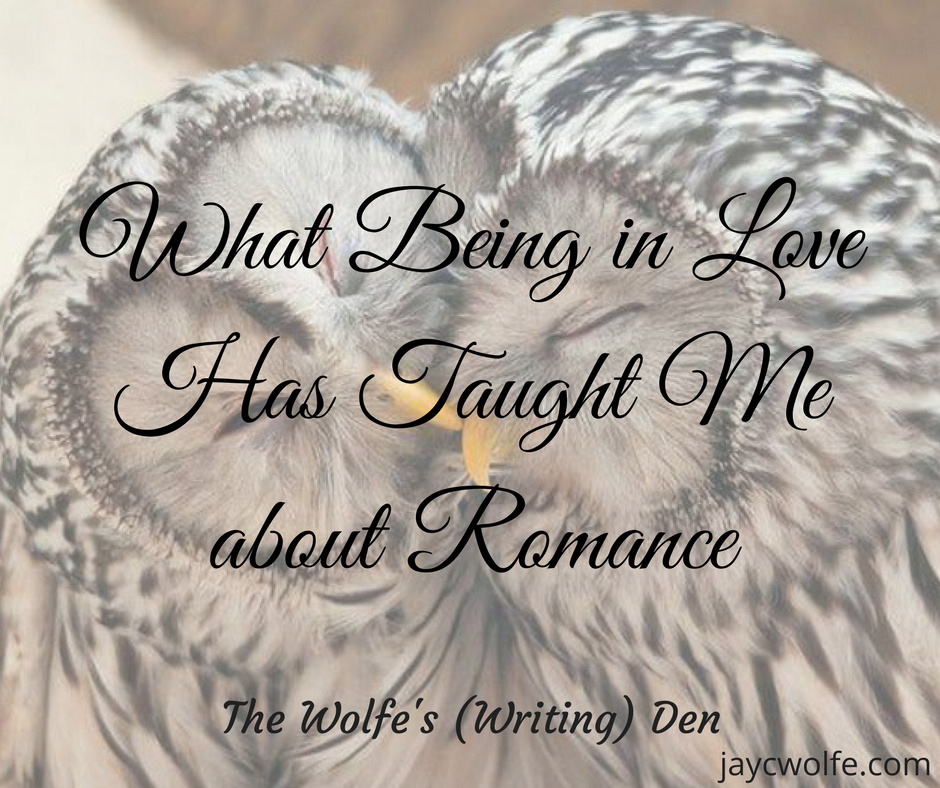
1) The greatest romance is with your best friend.
I know some guys still have a hard time believing this, so let me clear something up right now: there is no such thing as the “friend zone”! Trust me: this is coming from a woman who’s never dated a guy she didn’t consider a friend first. Just saying.
Now don’t get me wrong: I’m not saying you should always establish a friendship with someone before you start dating them. I’m just saying that when you do fall in love, it should be with someone you consider a true companion: someone who makes you laugh, who makes you feel safe, and who will always be there for you no matter what.
In other words, your best friend.
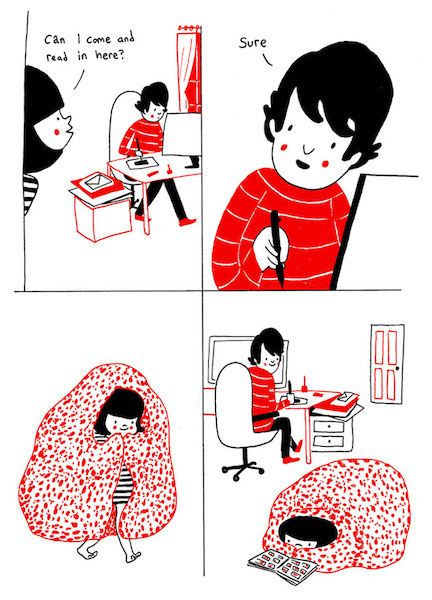
Me when my boyfriend is playing PC games while I’m writing
Illustration from the comic “Soppy” by Philippa Rice
I had the good fortune of falling in love with a man I already loved and trusted as a friend. This took a lot of pressure off the beginning of our relationship, and it’s only gotten better ever since! It’s no wonder so many of my fictional couples start out as close friends; it’s worked out so well in my real life!
2) True love isn’t in extravagant gifts and declarations; it’s in everyday words and gestures.
Any woman who grew up watching Disney princess movies from the 20th century probably reached adulthood with unrealistic expectations of men. After all, Disney princes are valiant heroes who give magic kisses and go to incredible lengths to rescue the women they love. Real-life guys can hardly compare, right?
But if there’s one thing I’ve learned from my current relationship, it’s that the so-called true love in fairy tales is very different from true love in real life.
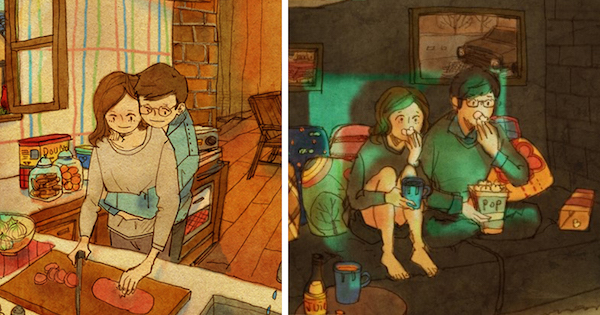
Love is in the little things
Illustrations by Puuung
I know beyond a doubt that my boyfriend loves me, but not because he showers me with gifts or writes me poetry that would rival Shakespeare’s. I can see it in the little things: the way he looks at me, the way he smiles at the sight of me when he comes home from work, the way he tells me I’m beautiful even when I’m wearing sweats and my hair is a mess, the way he knows exactly what to say or do to make me laugh.
In turn, I do my best to show him how much I love him in the same way: I compliment him every day, I constantly remind him how proud of him I am, and I do whatever I can to cheer him up when he has a bad day. Love is a two-way street!
Drawing inspiration from personal experience, I often add the same details to the relationships between my characters. True love means making each other happy, and in the long run, isn’t that much easier with small everyday gestures than with grand declarations of love?
3) You deserve someone who loves you just the way you are.
There are too many stories out there about girls who change everything about themselves just to please their guys, like Twilight or Grease or The Little Mermaid. Personally, I prefer the kind of story where the guy falls for the girl because she’s already everything he needs and vice versa.
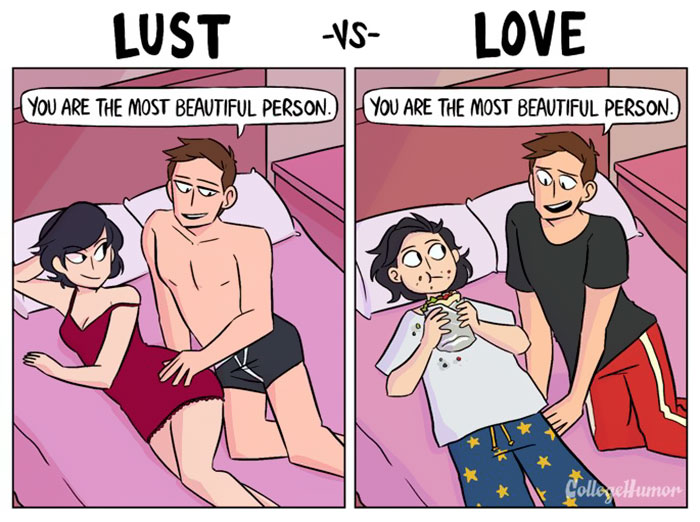
The Difference between Love and Lust
Illustration by Karina Farek for CollegeHumor
I like to think my boyfriend and I found each other at the right time in our lives. I was in college and constantly feeling lonely and frustrated because I couldn’t seem to fit in with my classmates, while he wasn’t exactly at the highest point in his life either.
The initial connection we had and the relationship that followed have since found their way into some of the best romantic stories I’ve ever written. My favorite of these was about two young people who, despite being fine enough on their own, completed each other and made each other stronger. I didn’t have to look far for the inspiration behind that one!
There’s no better feeling than having someone who always supports your dreams and loves you just the way you are (besides your parents, of course). So if you love writing about love, I highly recommend experiencing it yourself. With a true romance in your life, you’ll never run out of inspiration!
What about you? What lessons have you learned about love in your lifetime? How have they inspired your writing?
Here There Be Dragons: About My Self-Publishing Experiment
Last week, I sent out a call for beta readers for three of my short stories about dragons. If you haven’t seen it yet, find out more here!
I mentioned that the stories I’m editing are going to be compiled into an ebook as part of a self-publishing venture. So today, I want to talk about what this little experiment is all about.

The Dragon Story Experiment
After five years of blogging, I realized it’s high time for an upgrade in my status as a writer. Obviously this includes actually publishing a book already, but there’s more to it than that.
After a month of reflection, I’ve been getting myself excited about changing… well, pretty much everything about my online presence.
But before I do, I want to “test the waters” of the Kindle market. And I felt there were no better stories to start with than a handful that I’ve already shared online and found moderate success with.
Why these stories?
I chose three stories with a common theme that have already been well received, which gives me a major confidence boost going in.
Here’s the catch, though: all the feedback I’ve gotten on these stories so far has come from writers, fellow artists who are already familiar with the craft and the work that goes into every story.
On the one hand, this is good because experienced writers can identify mistakes that go unnoticed by the untrained eyes of average readers. On the other, writers may be more inclined to be positive and encouraging than brutally honest to fellow artists out of empathy. We all want to be supportive, right?
So my experiment is to try to expand the reach of my writing and see if it still holds up with average readers who are just looking for a good story.
The first step is to show my stories to beta readers who have volunteered to point out the strengths and weaknesses in my writing and help me make it better. The next is to put the final drafts of those stories in front of paying readers and see how they fare. Whatever happens, I’ll take what I learn and apply that knowledge to my future self-published books.
Why now?
Now is probably a good time to mention that my “author persona upgrade” will almost definitely come with a name change! Wait, what? Again, more on this later.
This test run is therefore a way get my work out there without the fear of failure. Nobody likes it? No problem; it’s not really me! Everyone likes it? Great, now I know for sure that I can write stories readers enjoy!
So what does this all mean? Well, nothing yet. For now, I’ll continue writing and blogging as usual. But I am planning to change that in a couple of months when my blog turns five years old!
Until then, I’ll be focusing on my mini short story anthology. Here’s hoping my experiment is a success!
Are you interested in being a beta reader for my short stories? Sign up for my beta readers’ list!
Wanted: Fantasy Beta Readers! (Feb 2018)
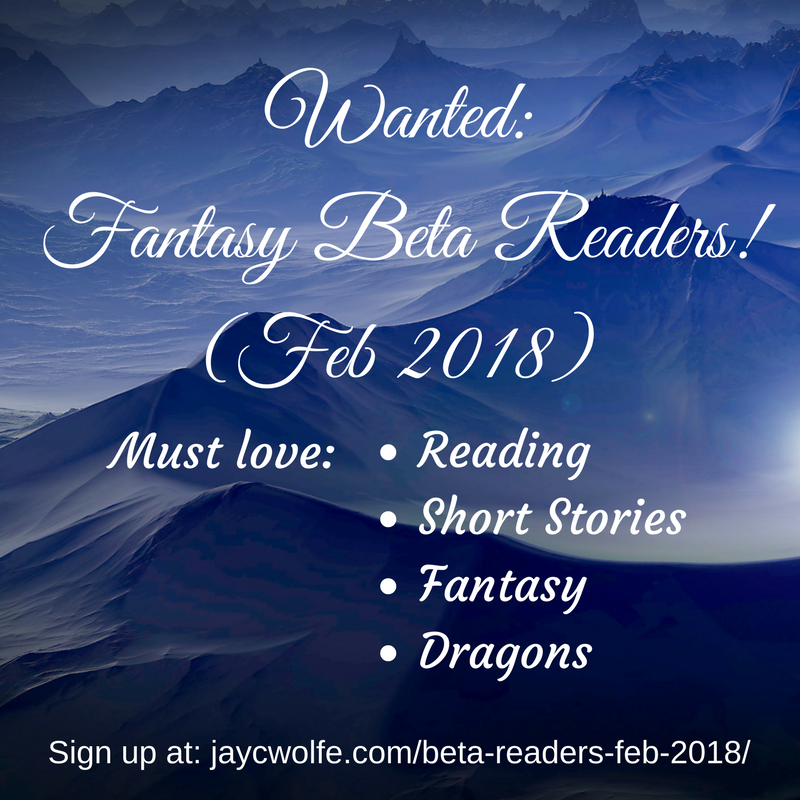
Do you like fantasy? Do you like short stories? Do you like dragons? Do you love free fantasy short stories about dragons? Well, then do I have an exciting offer for you!
So remember how I mentioned at the beginning of January that I want to finally self-publish this year? Well, I’m kicking off that New Year’s resolution with a little experiment!
I’m compiling three short stories about dragons that I’ve already written and published online into a single ebook. I’m editing those stories now, but when I’m done, I’ll need some beta readers to look them over and give feedback to help me polish them into a “publishable” form.
This small short story anthology will be a self-publishing “test run” while I prepare to make some big changes to my platform (more on that later).
If you’re interested in reading early drafts of my stories, sign up for my beta readers mailing list (no spam, double pinky promise)! You should receive a confirmation email first, then a welcome email after you finish signing up. 😉
Note: if you don’t receive a confirmation email after using the form above, try signing up again here: http://eepurl.com/di4ZE9
Be sure to leave a comment if you sign up so I can check that you made it onto my list! And please let me know if you have any problems signing up! I’m still new to this whole email thing, so there may still be some bugs to work out. Thanks!
To those of you who choose to sign up, thank you so much for your interest in my stories! It seriously means the world to me!
Thanks for reading, and may you all have a productive and successful 2018!
Off The Bookshelf: 1984
Last year was certainly an interesting one for history, but also for my reading list! I finally got around to enjoying a few classics I’d been wanting to read for years, so today I’m focusing on one of them for my first book review of 2018. As if you haven’t heard about it enough in the past year, here’s my review of 1984 by George Orwell!
Summary
First published in 1949, 1984 (or Nineteen Eighty-Four) is a dystopian political novel and the last book ever written by George Orwell. The protagonist of the story is Winston Smith, an Outer Party member living in the fictional totalitarian superstate of Oceania. The government of Oceania is run by the Inner Party, commonly referred to only as the Party, and enforces an ideology known as Ingsoc.
Winston works in the Ministry of Truth, revising historical records for the government while secretly hating the Party and dreaming of rebellion against their leader, Big Brother. The novel follows Winston as he navigates through a world where history is fiction, the government is always watching you, and independent thinking is punishable by death.
Review
First off, I know it may seem like I only read this book now because it feels more relevant than ever, but while that was a valid reason that did make the book easier to find (I picked it up from a “bestsellers” table at Barnes & Noble), the truth is that George Orwell’s 1984 is a book I’d been wanting to read for years but that I hadn’t found the time (or copy in English) to read until last year.
Having said that, the fact that I read the book in 2017 may have made it that much more realistic and terrifying.
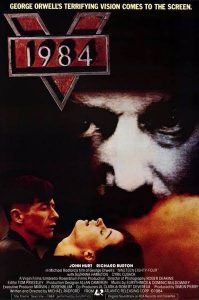
Movie poster for 1984 (1984)
The totalitarian nightmare that is the world of 1984 is one of the scariest things I’ve ever read in a book, probably because it feels so real. Modern history aside, the idea of an authoritarian government with absolute power existing only 35 years into the first edition’s future speaks volumes about how easily people can be manipulated and controlled.
The most obvious criticism within this theme is against communism (Ingsoc being short for “English Socialism”), which was still on the rise in Orwell’s day, but the author was warning us about the dangers of psychological manipulation and the control of information even in democratic societies. As is mentioned later in the story, the Party seeks power solely for the sake of power, and in so doing, deprives humanity of the very freedoms that make us human.
But as noted in this TED-Ed video, “authoritarian alone does not Orwellian make.” The scariest part of Oceania’s totalitarian regime isn’t the omnipresent surveillance nor the persecution of individualism, terrifying as they are; it’s the control of thought and behavior through language.
The official language of Oceania is Newspeak—a version of English stripped down to its barest bones. In Newspeak, most words have a single concrete meaning, sentences are constructed via a basic grammatical system, and entire words and definitions have been scrapped from the dictionary. The point of this is to completely eliminate critical thinking from the population, thus maintaining the Party’s power indefinitely. If that idea doesn’t send chills down your spine, I don’t know what will.
It is in these portrayals of language and thought that George Orwell’s astute observations about society are most evident. In his essay “Politics and the English Language” (1946), he examines the use of language as a political device—or more accurately, the distortion of language as a catalyst for political manipulation.
Political language — and with variations this is true of all political parties, from Conservatives to Anarchists — is designed to make lies sound truthful and murder respectable, and to give an appearance of solidity to pure wind. – George Orwell, “Politics and the English Language” (1946)
Overall, 1984 is a chilling yet fascinating read that deserves its place among the greatest novels ever written for its timeless message of warning to humanity. Though I’m sure he could never have imagined a future with the Internet and social media, Orwell was right to urge us not to lose our language and individual thought. They’re our greatest defenses against the threat of a world where war is peace, freedom is slavery, and ignorance is strength.
Inspiration
Orwell’s 1984 is considered one of the most powerful and influential literary works of the 20th century, and with good reason. Despite having been written in the late 1940s, the book only seems to become more relevant with each passing year. Why else do sales of this novel continue to spike over half a century since its debut?
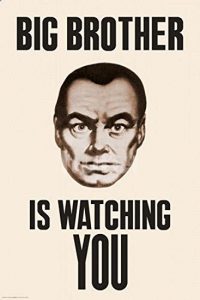 Along with Yevgeny Zamyatin’s We and Aldous Huxley’s Brave New World, 1984 is part of the trilogy of quintessential “negative utopia” novels of the mid 20th century. To this day, it inspires us to imagine a world without the basic freedoms we take for granted and to question if we’re really headed in the right direction as a society.
Along with Yevgeny Zamyatin’s We and Aldous Huxley’s Brave New World, 1984 is part of the trilogy of quintessential “negative utopia” novels of the mid 20th century. To this day, it inspires us to imagine a world without the basic freedoms we take for granted and to question if we’re really headed in the right direction as a society.
In the digital age, we’ve long been at the point of willingly trading privacy for convenience, and a case can be made for how we already practice “doublethink” every day. It’s no wonder this novel continues to top bestseller charts in the 21st century: we’re already living in the future of mass surveillance and public manipulation!
It’s worth noting that spikes in sales of 1984 are not that uncommon. Remember Edward Snowden and the NSA scandal? Current events have a way of drawing people back to this classic again and again, but whether that’s a good or a bad thing depends on your perspective. Yes, it’s scary to think we’re becoming the world Orwell predicted in the ’40s, but it’s good that we’re recognizing the signs early, right?
While it’s easy to read a book like 1984 and fear the expanding powers of government, Orwell’s story is more of a cautionary tale for society as a whole. It’s not just our democracy and political integrity that we must protect, but our language and our ability to think critically.
Like the people of Oceania before the perpetual war and the rise of Ingsoc, we are responsible for the course our history takes. The difference is that we may still have a chance to preserve our rights and defend our individuality before it’s too late.
Five More Books I Want to Read in 2018
Last week, I shared the first half of my list of top ten books I want to read in 2018. Now let’s dive into the second half! Here are the other five books I want to read this year! Enjoy!
6) A Clash of Kings by George R.R. Martin
After finally finishing A Game of Thrones last year, I just got the second book in the A Song of Ice and Fire series for Christmas! Like its predecessor, A Clash of Kings is an epic story spanning a few hundred pages, and given that I’m a relatively slow reader, I admit that I probably won’t finish it this year. Still, I’m sure I’ll enjoy it as much as the first book. Hopefully this one won’t take me another three years to finish!
7) Catching Fire by Suzanne Collins
Speaking of “the second book”, another series I started reading last year is The Hunger Games. Since I enjoyed the first book and all four movies, I’m looking forward to continuing the series with Catching Fire. And yes, I’ve heard that the sequels aren’t quite as good as the first book, as is often the case with YA series, but it seems a shame to start a trilogy I like and not finish it!
8) Arrival by Ted Chiang
This one is a slightly different choice for me, as it’s actually a collection of short stories instead of a single novel. Originally titled Stories of Your Life and Others, Arrival is the book on which the movie of the same name is based—or rather, it contains the short story on which the movie is based, “Story of Your Life”. Considering I’d like to read more sci-fi and short fiction this year, I’m looking forward to reading these stories!
9) Good Wives (Little Women, Part 2) by Louisa May Alcott
Did you know that the novel Little Women exists in two versions? One is only the first part, spanning a single year in the lives of the March sisters; the other is the full story that continues into their adult lives. The second part, when published separately from the first, is usually sold under the title Good Wives.
Well, I read Little Women two years ago and loved it, but since the copy I had was only “Act 1”, I still have yet to enjoy the whole book. This year, I plan to get my hands on a copy of the full version of Little Women so I can finally finish the story! (Yes, I’ll be sure to keep tissues handy!)
10) Astrophysics for People in a Hurry by Neil deGrasse Tyson
Yes, it’s another nonfiction space book by Neil deGrasse Tyson! Like StarTalk, Astrophysics for People in a Hurry is another book I intend to borrow from my boyfriend, who received it as a birthday gift last year. We’re both fascinated with space and I do enjoy popular science, so I know I’ll have fun reading this book!
And that concludes my list of books to read in 2018! I hope you enjoyed it, and as always, thanks for reading!
What about you? Any books you’d like to read this year? What other goals have you set for 2018?

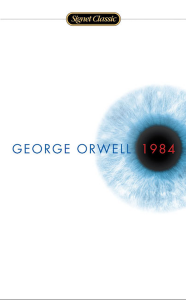
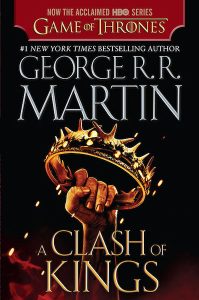
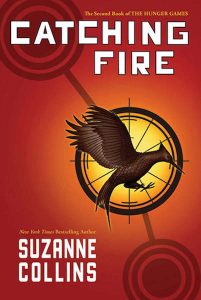
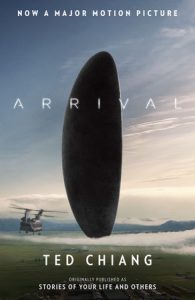
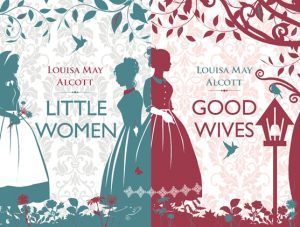
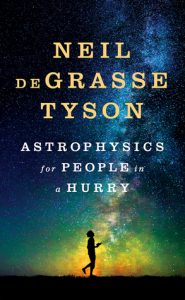

Recent Comments